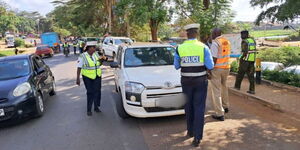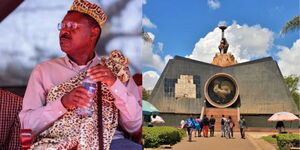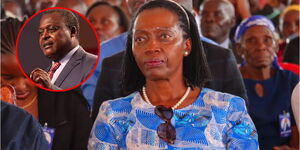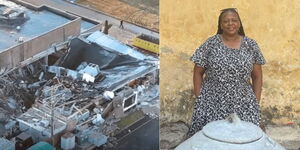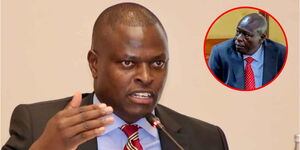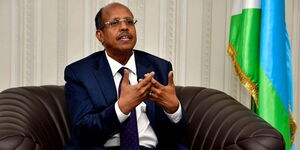Lupita Nyong’o, Kenya’s Hollywood sensation, has openly condemned President William Ruto’s administration for its handling of the anti-government protests that rocked the country from June to August this year.
The protests, sparked by widespread outrage over the Finance Bill 2024 and rising costs of living, led to a number of deaths and abductions. Interior Cabinet Secretary Kithure Kindiki confirmed the grim tally — 42 dead, 132 missing, and 1,208 arrested. The official acknowledgment has ignited further debates about the government’s tactics.
In an interview with BBC, Nyong’o did not mince words as she compared the current political climate to the repressive era of former President Daniel Arap Moi. Her father, Kisumu Governor Anyang’ Nyong’o, had been imprisoned and tortured during Moi’s regime for opposing the government, a period that left lasting scars on her family.
“It is chilling to know that this government is resorting to tactics I thought were left behind,” Lupita remarked, drawing attention to the haunting similarities between the past and present.
The government, under Ruto’s leadership, has faced international and domestic scrutiny for its approach to quelling the protests. Streets across major cities, from Nairobi to Kisumu, had been engulfed in chaos, with police clashing with demonstrators. Critics accuse the administration of using excessive force, while defenders of the government maintain that the protests posed a significant threat to public order.
For the first time, the government admitted to fatalities linked to these protests in September. However, the rising number of missing persons and deaths has only fuelled more anger. Lupita’s words come at a pivotal moment, as she expressed deep concern for Kenya’s future.
“The more things change, the more they stay the same... I don’t know how this story ends,” she lamented during the interview, emphasising the uncertainty looming over Kenya’s democracy.
Nyong’o’s connection to the protests extends beyond mere political commentary. She shared personal experiences of her childhood during her father’s disappearance under Moi’s rule, recalling the fear and confusion her family faced.
“We were not allowed to open the curtains, go to school, or keep any of his writings,” she shared in her new podcast, Mind Your Own. It’s a painful memory she now sees reflected in the struggles of today’s youth, fighting against a system they feel is failing them.
The 1980s were a dark time for the Nyong’o family. Lupita’s uncle, an activist like her father, mysteriously disappeared, and his body was never recovered. Her family believes he was killed for his activism, a fate that left a lasting mark on the actress. Her return to the conversation about Kenya’s political landscape comes as no surprise to many, given her family’s deep-rooted history of political struggle.
Lupita also expressed admiration for the courage of today’s protesters, many of whom have been labelled as part of the "Gen-Z" movement. “I am deeply grateful for the younger people who are on the front lines fighting for a different Kenya,” she said, acknowledging their bravery and the parallels to her father’s generation of activists.
Government spokesperson Isaac Mwaura pushed back against Lupita’s comments, insisting that the current administration cannot be compared to Moi’s regime. Mwaura expressed regret over the deaths but maintained that the government had acted out of necessity to restore order.
Nonetheless, Lupita’s remarks have resonated with many Kenyans, particularly those who feel disillusioned by Ruto’s government.

